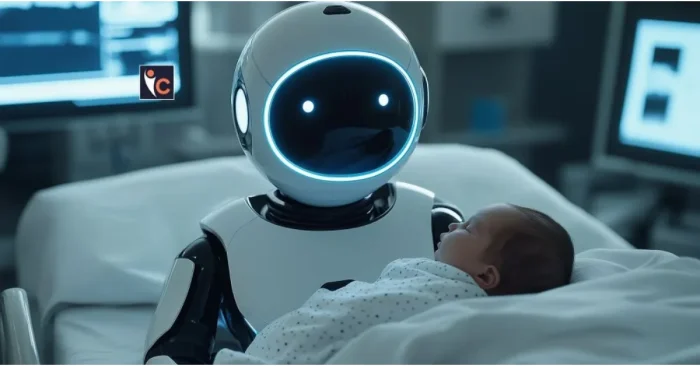Overview
AI tools for newborn care are transforming the way parents and healthcare providers monitor and support infants during their earliest stages of life. These tools leverage artificial intelligence to track vital signs, sleep patterns, feeding schedules, and developmental milestones, helping ensure the well-being of newborns.
AI-enabled wearables and smart monitors can detect irregularities such as breathing issues, abnormal heart rate, or sleep disturbances in real time. Moreover, AI-driven apps provide personalized tips, predict feeding needs, and alert caregivers of potential risks. Hospitals and pediatricians also use AI systems to monitor premature babies, reducing risks of infections or complications. By combining health monitoring with predictive insights, AI tools empower parents with peace of mind and enhance neonatal care, ultimately contributing to healthier outcomes for newborns.
1. Owlet Smart Sock – AI Baby Health Monitor
Owlet uses AI to monitor a newborn’s oxygen levels, heart rate, and sleep patterns through a wearable smart sock. Parents receive real-time alerts on their smartphones.
2. Nanit Plus – AI Sleep and Breathing Tracker
Nanit applies AI to track sleep patterns and breathing movements. It provides parents with detailed insights, sleep tips, and video monitoring for better infant care.
3. CuboAi – AI Safety Baby Monitor
CuboAi uses AI vision technology to detect unsafe sleep positions, face covering, and crying. It alerts parents instantly to prevent potential risks during sleep.
4. Sproutling – AI Wearable for Infants
Sproutling, developed by Fisher-Price, tracks vital signs, movement, and sleep quality using AI. It provides predictive insights to help parents anticipate baby’s needs.
5. Lumi by Pampers – AI Diaper and Sleep Tracker
Lumi combines smart diapers with AI monitoring tools to track wetness, sleep patterns, and activity. The data helps parents maintain consistent newborn care routines.
6. Happiest Baby’s SNOO – AI Smart Sleeper
SNOO is an AI-powered bassinet that soothes babies by detecting crying and automatically rocking or playing white noise to help newborns sleep better and longer.
7. Baby+ App – AI Daily Growth & Care Guide
Baby+ applies AI to guide parents with daily insights on growth, feeding, and developmental activities, offering personalized recommendations for newborn care.
8. Neebo – AI Wearable for Babies
Neebo is a baby wearable that uses AI to monitor oxygen levels, heart rate, and temperature, sending instant alerts to parents about possible health concerns.
9. BlueSmart Mia – AI Bottle Feeding Monitor
BlueSmart Mia uses AI to track feeding amounts, frequency, and duration. It ensures infants are getting the right nutrition and alerts parents of irregular feeding patterns.
10. Raybaby – AI Non-Contact Baby Monitor
Raybaby is an AI-powered monitor that tracks breathing and sleep without wearables. Using radar and AI, it offers accurate health monitoring with minimal disturbance.
(FAQs)
Q1: How do AI tools improve newborn care?
AI tools track vital signs, feeding, and sleep while alerting parents to potential risks. They provide personalized insights, ensuring healthier and safer care for newborns.
Q2: Are AI baby monitors safe to use?
Yes. AI monitors use non-invasive technology and provide real-time alerts. They are designed for safety but should complement, not replace, parental supervision.
Q3: Can AI newborn tools be integrated with healthcare providers?
Some platforms share data with pediatricians, helping doctors monitor a newborn’s health remotely and intervene promptly if irregularities are detected.
Learn More About AI Course https://buhave.com/courses/learn/ai/






